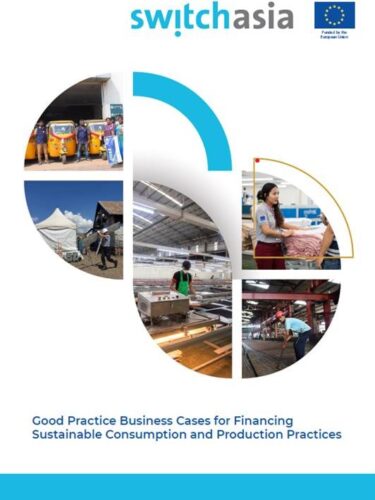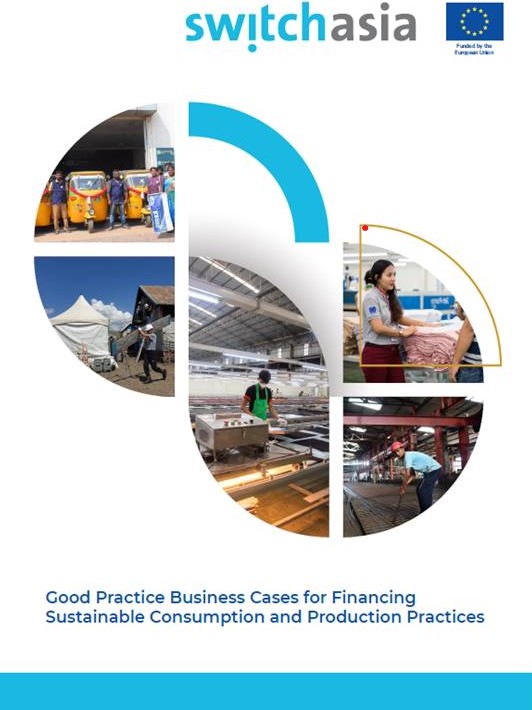What are enabling factors for financing SCP Business Cases? That was a research question of a team of experts that examined projects funded by the SWITCH-Asia Programme. They analysed project’s objectives and impacts and their relevance to policies promoting SCP as well as their relevant to the recent policy priorities of the EU Green Deal. Information was gathered by document analysis and by way of interviews with the grant-implementing organisations
The project team discerned among four project types. The majority of grant projects related to the “Cleaner Production” and “Value Chains” project clusters, focusing either on innovative cleaner production technologies in manufacturing or on strengthening sustainable value chains and business linkages within a specific sector. Fewer projects were part of the two remaining types, addressing the integration of informal sector players into the formal economy (“Sector Formalisation”) and fostering sustainable consumption patterns and consumer awareness (“Sustainable Consumption”).
The study also looked into enabling factors for access to finance. Several factors seem to be enabling successf ul financing of bankable business cases at scale through financial product development in cooperation with local financial institutions (FIs). This includes multi-stakeholder involvement, the assessment of enterprises’ bankability and the local financial market readiness, and the use of tested approaches to develop financing “pipelines”, that are standardised and build on established relationships or invest in relationship-building between (M)SMEs and FIs.
ul financing of bankable business cases at scale through financial product development in cooperation with local financial institutions (FIs). This includes multi-stakeholder involvement, the assessment of enterprises’ bankability and the local financial market readiness, and the use of tested approaches to develop financing “pipelines”, that are standardised and build on established relationships or invest in relationship-building between (M)SMEs and FIs.
Many projects sought to build relations with key decision-makers on the local, regional and national level while deploying innovative processes such as policy prototyping workshops. Thereby, many grant projects substantially contributed to a more enabling environment for Sustainable Consumption and Production in the target region. The SWITCH-Asia grant scheme accounted for significant achievements in decoupling economic growth from environmental degradation and carbon emissions. Completed SWITCH-Asia projects accounted for overall savings of more than 25,000,000 t CO2e to date. Reported data on CO2 emissions reduction varies substantially across projects, mainly explained by the different foci of the actions (e.g. energy-intense industry vs. small-scale agri-businesses. A majority of projects is of relevance to the EU Green Deal and supporting policies, implementing measures in key sectors and promoting circularity and sustainability along value chains.

